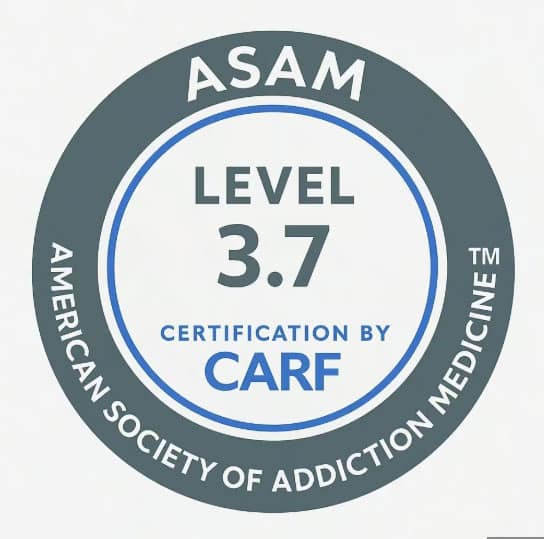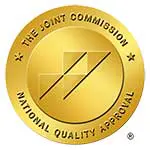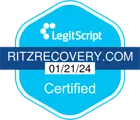Heroin Addiction Treatment in Los Angeles
Struggling with heroin addiction? Ritz Recovery offers a warm, luxurious sanctuary for those in need of heroin rehab in Los Angeles. Our approach is personal and holistic, understanding that each journey to recovery is unique. With top-notch care, innovative treatments, and a supportive environment, we’re dedicated to helping you reclaim your life. In LA’s fast-paced shadow, find peace and a path forward with Ritz Recovery, where healing begins with compassion and tailored care.

Understanding Heroin Addiction
The repercussions of heroin addiction are undeniably severe. Fortunately, numerous treatment options and resources are accessible to support individuals grappling with heroin addiction. This article aims to serve as a comprehensive guide, providing insights into the nature of heroin addiction, its symptoms, underlying causes, and strategies for overcoming it. By understanding the complexities of heroin addiction and exploring the available resources, individuals can gain valuable knowledge to embark on a path towards recovery and reclaim their lives.
What Is Heroin?
Heroin, derived from the poppy plant, is an opioid drug known for its highly addictive nature. Its misuse carries the grave risk of overdose and fatality. Heroin is commonly available in the form of white or brown powder, or as a sticky black substance resembling tar. The drug induces a euphoric and calming sensation, contributing to its widespread abuse. However, the abuse of heroin can lead to tolerance, dependence, and the development of addiction.
How Heroin Is Used
Although primarily recognized as an illicit substance, heroin has a complex history involving both legal and illegal applications. During the early 1900s, heroin was commercially promoted as a cough medicine and utilized for treating various ailments. However, its addictive properties swiftly came to light, leading to its prohibition.
Despite being illegal, heroin remains in use across the globe. It is typically administered through injection, smoking, or snorting, with its effects varying in duration, encompassing both short-term and long-term impact.
Factors Behind the Growing Heroin Use
In recent years, the utilization of heroin has seen an alarming surge, particularly among young adults. Various elements contribute to this escalation, including the increased availability of heroin, evolving attitudes towards drug use, and the heightened potency of the substance.
The accessibility of heroin has expanded due to the growth of the global drug trade. South America and Asia serve as significant production hubs, resulting in a more widespread availability of the drug. Furthermore, changes in societal perceptions have contributed to the acceptability of heroin within certain circles. This shift can be traced back to the early 2000s when media portrayals began portraying heroin use in a more favorable light.
Moreover, the heightened potency of heroin has played a crucial role in its increased usage rates and the subsequent rise in heroin addiction. The potency of the drug has intensified, potentially leading to a stronger and more addictive experience for users.
Contributing Factors to Heroin Addiction
Heroin addiction affects a significant number of individuals worldwide, and like any form of addiction, it stems from various underlying causes that can vary from person to person.
One key contributing factor to heroin addiction is exposure and access to the drug. Individuals may be exposed to heroin through family members or friends who use the drug, or through media that glamorizes drug use. Such exposure increases the likelihood of developing addiction once introduced to heroin.
Chronic pain is another common cause of heroin addiction. Individuals experiencing chronic pain often receive opioid prescriptions to manage their discomfort. However, these opioids can be highly addictive, leading some individuals to transition to heroin for similar effects due to its increased accessibility and lower cost.
Additionally, several other factors may contribute to heroin addiction, including genetic predisposition, mental health issues, and exposure to traumatic experiences. Each of these factors plays a role in the development and progression of heroin addiction.
Indicators of Heroin Addiction
Recognizable signs of heroin addiction encompass:
- Diminished interest in previously enjoyed activities
- Social withdrawal from friends and family
- Engaging in deceptive or theft-related behaviors to obtain money for heroin
- Disrupted sleep patterns
- Actively seeking out precarious situations
- Engaging in chaotic or risky behaviors
If you or someone you know exhibits any of these signs or symptoms of heroin addiction, it is crucial to seek help promptly.
Consequences of Heroin Addiction
Heroin, an extremely addictive substance, inflicts profound harm on the physical and mental well-being of individuals. Heroin addiction triggers intense cravings, fostering compulsive drug-seeking behaviors that can result in severe health complications, including fatal overdoses.
Common physical effects of heroin addiction encompass:
- Liver and kidney diseases
- Insomnia
- Vomiting and diarrhea
- Paranoia
- Collapsed veins
- Mental disorders
- Muscle and bone pain
Moreover, heroin addiction often leads to financial turmoil as individuals progressively allocate more funds toward acquiring the drug. In some cases, individuals resort to criminal activities to obtain money for their drug dependency.
Treating Heroin Addiction
Heroin addiction exacts a devastating toll on individuals and those close to them. Fortunately, a range of treatment options exists, with the most effective approach varying from person to person.
Detoxification
The initial step in heroin addiction treatment is detoxification, a process where the body eliminates the drug. While detox can be challenging and uncomfortable, it is vital for starting the recovery journey and reducing the risk of relapse.
Medication-Assisted Treatment
Medication-assisted treatment is widely utilized and highly effective for heroin addiction. Medications can alleviate withdrawal symptoms, curb cravings, and manage other aspects of addiction. Methadone and buprenorphine, both opioids, are commonly prescribed to reduce cravings and withdrawal symptoms. Naltrexone, an opioid antagonist, blocks the effects of opioids.
Cognitive Behavioral Therapy
Cognitive behavioral therapy (CBT) is a form of psychotherapy that targets thoughts and behaviors. It has demonstrated effectiveness in treating various co-occurring mental health conditions alongside heroin addiction, such as anxiety and depression. Recent studies also highlight CBT’s benefits in addressing heroin addiction by facilitating understanding of the addiction, modifying thought patterns, and developing coping skills.
Support Groups
Support groups have proven highly valuable for individuals grappling with heroin addiction. These groups provide a supportive environment for sharing experiences and connecting with others who can relate to the challenges faced. Practical advice and guidance on navigating life in recovery from heroin addiction are also offered within support groups.
If you or someone you know is struggling with heroin addiction, exploring these treatment options, including medication-assisted treatment, cognitive behavioral therapy, and support groups, can significantly aid the recovery process.
Preventing Heroin Relapse: Effective Strategies
While relapse remains a potential challenge, several proactive measures can be taken to help prevent a recurrence.
Consider the following tips to minimize the risk of heroin relapse:
- Identify and Acknowledge Warning Signs: Learn to recognize the early signs of relapse and promptly seek assistance if they arise.
- Engage in Supportive Services: Regularly participate in support group meetings and individual therapy sessions to maintain a strong support network and receive guidance from professionals.
- Avoid Triggers: Steer clear of individuals, environments, and situations that may trigger cravings for heroin. Minimizing exposure to such triggers can safeguard against relapse.
- Embrace a Healthy Lifestyle: Prioritize self-care by making healthy lifestyle choices. Engage in activities that promote physical and mental well-being, such as exercise, nutritious eating, and stress-reducing practices.
- Stay Committed to Recovery: Remain actively involved in your recovery journey and continually seek ways to stay engaged. Explore new hobbies, interests, or meaningful pursuits that support your overall well-being.
- Practice Patience and Self-Compassion: Recovery is a process, and setbacks may occur. Be patient with yourself and practice self-compassion during challenging moments. Remember that every step forward is progress.
By implementing these strategies, individuals can enhance their resilience and reduce the likelihood of heroin relapse, empowering themselves towards sustained recovery.
Get Help Today
Schedule a confidential assessment with our admissions team.






